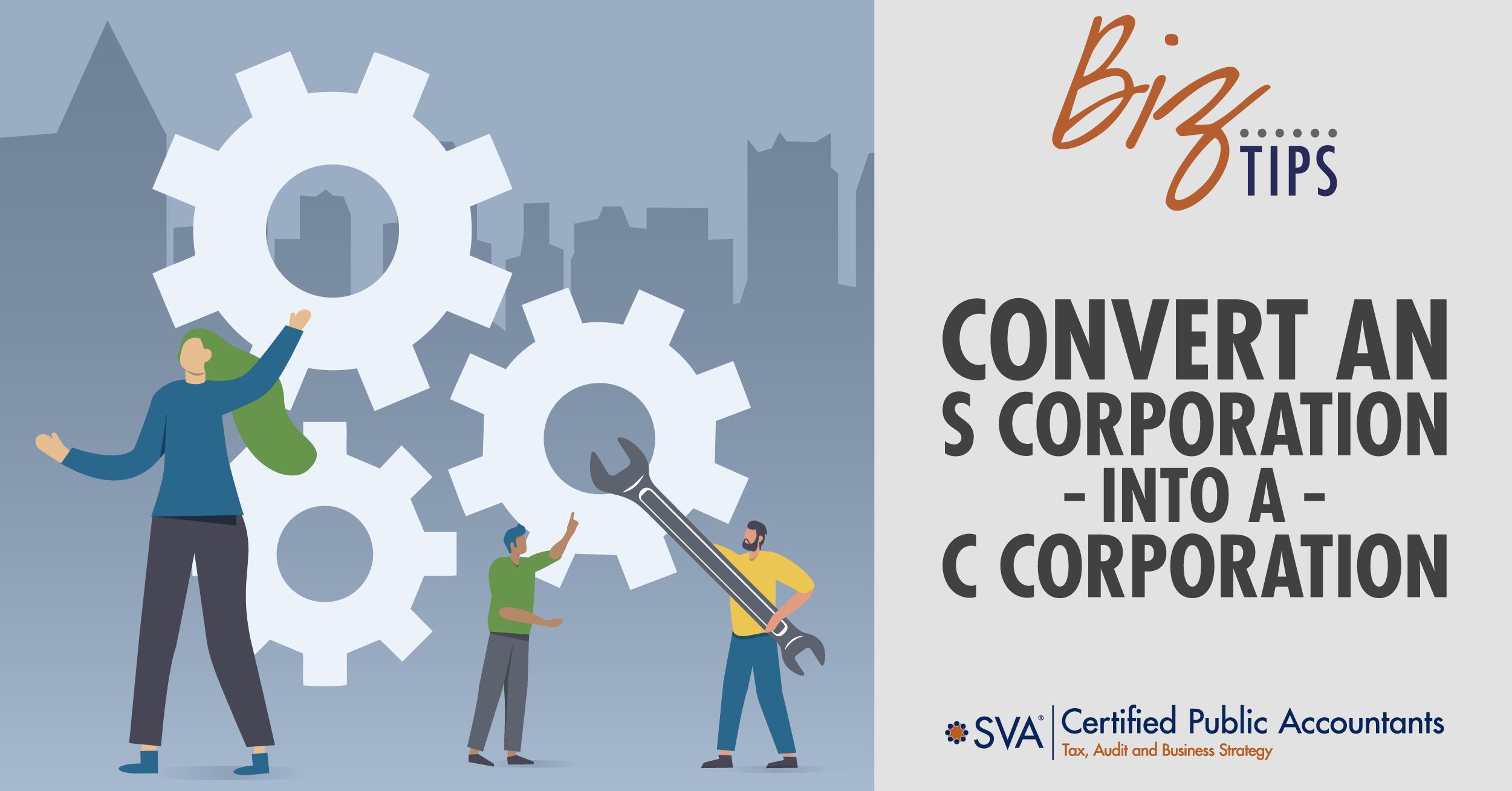Converting your S corporation into a C corporation may seem daunting, but with this guide, you'll understand the simple steps and benefits involved.
If you're considering making the switch, it's essential to understand the critical differences between the two types of corporations and why you might want to convert.
(Download Video Transcript)
Understanding the Differences Between an S Corporation and a C Corporation
First, let's define what we mean by an S corporation and a C corporation.
An S corporation is a type of corporation that is taxed similarly to a partnership or sole proprietorship. This means the business's income and losses are passed through to the shareholders and reported on their individual tax returns.
A C corporation, on the other hand, is taxed as its own separate entity. This means that the business pays its own taxes on any income it generates, and the shareholders pay taxes on any dividends they receive.
Why Convert from an S Corporation to a C Corporation?
Many businesses choose to convert from an S Corp to a C Corp to take advantage of flexible capital options and potential tax benefits. Understanding why and how to make this transition can guide your decision.
|
Greater Flexibility
|
C corporations have a more comprehensive range of options when it comes to raising capital, including the ability to issue stock options and bonds. This can make it easier for a C corporation to expand and grow.
|
|
Limited Liability Protection
|
Both S corporations and C corporations provide their shareholders with limited liability protection, but C corporations have the added advantage of being able to issue multiple classes of stock. This can help protect the interests of different groups of shareholders.
|
|
Potential for Lower Taxes
|
Depending on the specific circumstances, it may be more tax-efficient for a business to be taxed as a C corporation. For example, if a business is generating a lot of income, it might be beneficial for it to pay taxes at the corporate rate (which is typically lower than the highest individual tax rate) rather than passing the income through to shareholders and having them pay taxes at the individual rate.
|
The Process of Converting from an S Corporation to a C Corporation
Now that you understand the key differences between S and C corporations, let's talk about how to convert from one to the other. The process is relatively simple, but there are a few steps you'll need to take:
Check Eligibility: Ensure Your Business Meets the Criteria
In order to convert from an S corporation to a C corporation, your business must meet specific criteria. For example, the business must be a domestic corporation and it cannot have more than 100 shareholders. Additionally, it must have only one class of stock.
File Form 2553
To convert from an S corporation to a C corporation, you will need to file Form 2553 with the Internal Revenue Service (IRS). This form is used to elect S corporation status, so you'll need to revoke that election if you're converting from an S corporation to a C corporation.
File Form 8832: Entity Classification Election
Form 8832 is required for the business to change its tax classification as a C corporation.
File Articles of Incorporation
To officially become a C corporation, you will need to file articles of incorporation with your state's business registration office.
Adopt a New Set of Bylaws
Once you are a C corporation, it is necessary to adopt a new set of bylaws that adhere to the regulations of a C corporation.
Notify Shareholders
Finally, you will need to notify your shareholders of the conversion and allow them to vote on the matter.
A Simple Conversion
Converting an S corporation into a C corporation can streamline your business operations and open new opportunities. Ensure you understand the critical differences between the two types of corporations and the steps you need to take to make the switch.
If you're considering converting, it's a good idea to talk to an accountant or attorney to make sure it makes sense for your business. With proper planning and preparation, the process can go smoothly.

© 2023 SVA Certified Public Accountants

